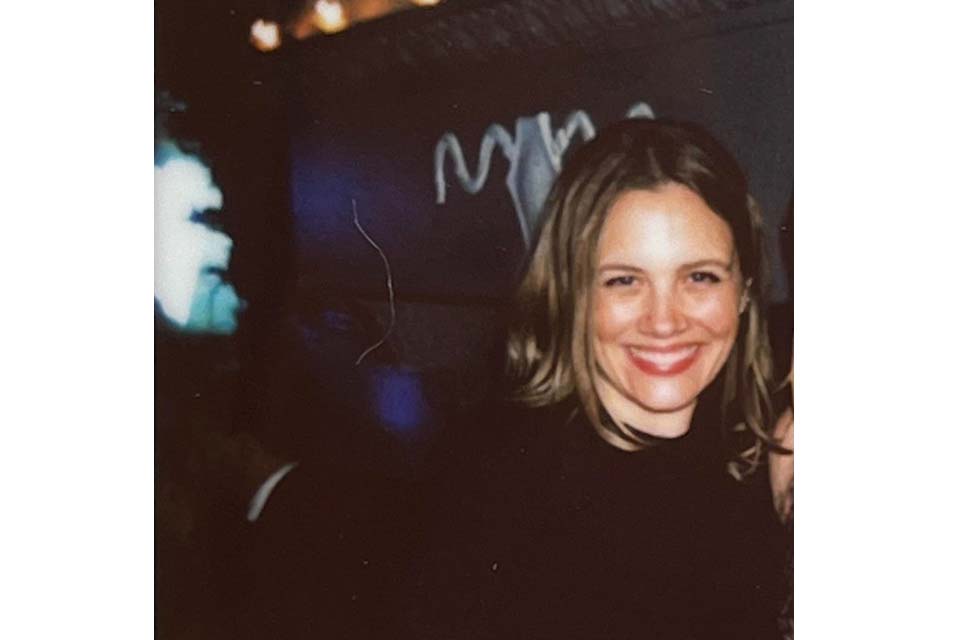Interdisciplinarity and a Liberal Arts Heart: An Interview with Sociology PhD Student Riagan McMahon

September 29, 2025
Abigail Arnold
Sociology PhD student Riagan McMahon was drawn to Brandeis University for its strong sense of community. McMahon was shifting from a career in public relations to academia; she did a master’s in sociology elsewhere while working full time. “I felt transient and didn’t build much community,” she said, “so when I made the decision to go back to school full-time for a PhD, community was really important to me. I wanted to be in a place where people knew me, collectively we knew about each other's interests, and there was space for collaboration. I also came from a liberal arts undergraduate school that had a similar feeling to Brandeis – I could walk around and always see faces I knew.” In addition to finding that atmosphere at Brandeis, McMahon was drawn to the chance to complete a joint MA in Sociology and Women’s, Gender, and Sexuality Studies (WGS). “I love that WGS here is so interdisciplinary and that I get to work with students from other departments,” she said. “My most energizing thoughts come from there, and I feel challenged.”
Now in her second year at Brandeis, McMahon has felt embraced by her program, as well as by the larger community. She especially appreciates the many opportunities to look at her research topics from an interdisciplinary perspective. “I’m interested in understanding power relations that structure our day-to-day lives and how gender, neurodiversity, and culture are big parts of that, and I’ve been able to find ways to focus these interests from different perspectives,” she said. In addition to Sociology and WGS, she has taken courses in History and the Heller School, giving her insight into the same questions from different angles. “I’ve had so many chances to test and challenge my expertise and knowledge, and I’m grateful for the opportunity to learn outside Sociology, while also loving the department itself,” McMahon said. “I’m continuously happy with the department’s willingness to talk about real life and how it affects us. They really consider who’s in the program, what they are interested in, and what is happening today that might affect them. I’m getting tools to understand what it means to be a sociologist while still having the agency to chart my own path.”
McMahon had especially warm words for the way Brandeis combines being an R1 university with the feeling of a liberal arts institution. “This feels really critical to me because I care about research but am a liberal arts person at my heart,” she said. “The Sociology Department prioritizes research, but liberal arts feels foundational to how it works, especially in the connection between WGS and Sociology.” In her WGS courses, she gets to work alongside students from other humanities and social science disciplines and engage with creative works such as fiction and poetry. “This is a huge part of my interests and feels like my liberal arts heart where I can tap my creativity,” she said.
She also praised the supportive mentorship of faculty. “Michael Strand and Sarah Mayorga have been instrumental in helping me build confidence – I struggle with perfectionism and often go to my mentors for reassurance and connection. When I approach professors here, everyone has been so open about their own experiences and struggles. Human connection is what continues to drive me and reminds me there is space for me here,” she said. McMahon also said that faculty she has taken classes with, even outside of the Sociology Department, keep up with her, continuing to talk to her about her research and ask her what she’s been working on.
McMahon is currently focusing on neurodivergent selfhood in her research. While she doesn’t yet have a full roadmap of her plans, she feels motivated to continue in this area and hopes to publish papers and eventually a book on the topic. Although none of the faculty in the department are specifically researching neurodiversity, she still finds that she has “so many networks of support.” For example, she works with quantitative sociologist Rachel McKane on the quantitative portion of her research and with cultural sociologist Michael Strand on the cultural portion. “Time and time again, I feel I have support,” she said. “I feel encouraged at Brandeis to explore topics in and outside the sociological canon to shape my perspective and inform my work.” Asked for any other advice she might give prospective students, McMahon said, “In the past, I’ve felt very insecure about my knowledge and myself as an intellectual. I never thought I’d be in a PhD program, but now, at the beginning of my second year, I’m feeling much more confident and looking at my own questions and realizing I’m on to something. If you’re interested in entering this space, you’re good enough! Your knowledge is interesting enough, and what matters to you matters. You do not need to size your journey up to those of others. I wish I’d known this when I was taking my first sociology classes at eighteen, but that’s okay – it all works out!”






